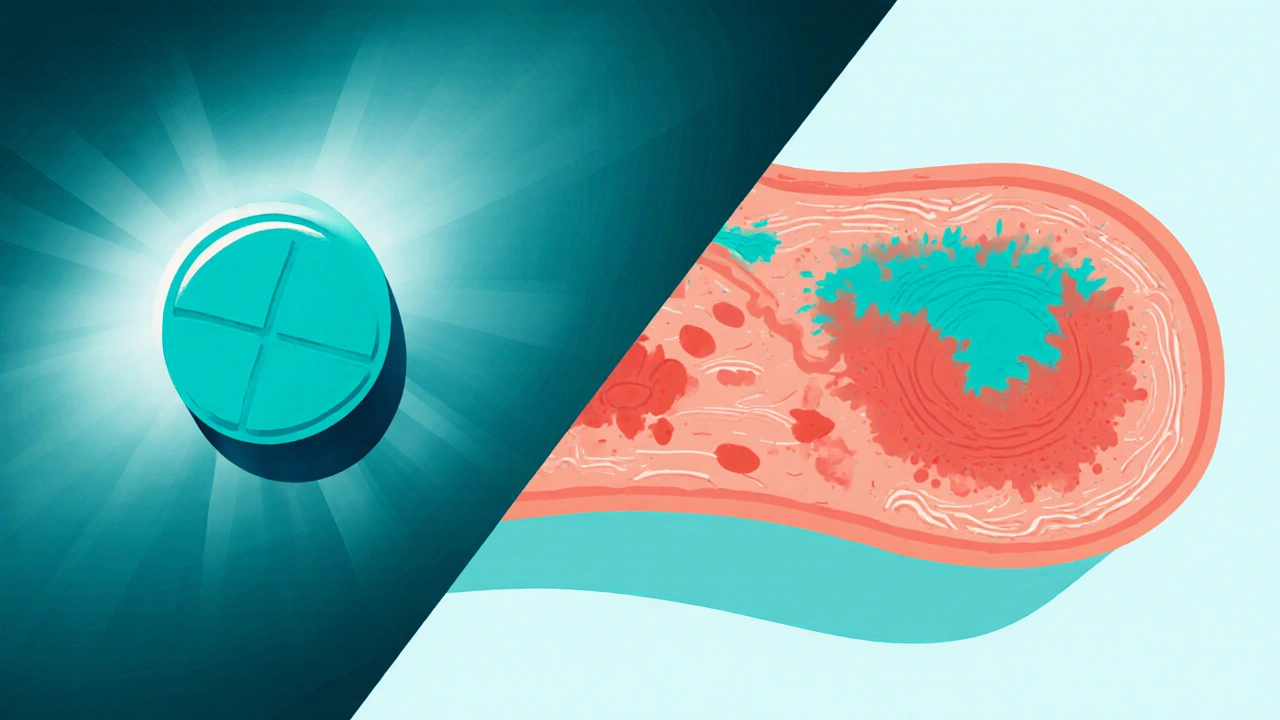Learn how rosuvastatin reduces inflammation, its impact on CRP, heart health benefits, dosing tips, side effects, and what recent studies reveal.
CRP Reduction: How to Lower Inflammation and Protect Your Heart
When your body is fighting something—whether it’s an infection, injury, or chronic stress—it releases a protein called C-reactive protein, a marker of inflammation produced by the liver that signals when something’s wrong in the body. Also known as CRP, it’s not a disease itself, but a red flag that something deeper might be going on. High CRP levels don’t tell you what’s wrong, but they do tell you that inflammation is active—and that’s a problem because long-term inflammation is linked to heart disease, diabetes, arthritis, and even some cancers.
Many people find out their CRP is high during a routine blood test and panic. But here’s the truth: inflammation, the body’s natural response to harm, becomes dangerous when it never turns off isn’t something you fix with a single pill. It’s a system-wide issue. That’s why the best strategies for CRP reduction mix lifestyle changes, smart supplements, and sometimes medication. You can’t outrun chronic inflammation with just aspirin or a one-time detox. You need consistent, daily habits that quiet the fire inside.
What works? Studies show that losing even 5% of body weight can slash CRP by up to 30%. Cutting out processed sugars and refined carbs does more than help your waistline—it directly lowers inflammation. Eating more fatty fish, walnuts, berries, and leafy greens isn’t just healthy advice—it’s a proven way to bring CRP down. Some people see results with omega-3 supplements, while others benefit from low-dose statins, especially if they already have heart risk factors. Even simple things like sleeping 7–8 hours a night or walking 30 minutes daily can make a measurable difference over time.
And it’s not just about what you eat or take. Stress matters. Chronic stress keeps your body stuck in fight-or-flight mode, which keeps CRP elevated. Meditation, deep breathing, or even just taking a walk without your phone can help reset your system. Sleep quality? Just as important. One study found that people who slept less than six hours had CRP levels nearly 50% higher than those who slept well.
There’s no magic bullet, but there’s a clear path. The posts below give you real, practical comparisons: what supplements actually lower CRP, how different diets stack up, what medications doctors prescribe when lifestyle isn’t enough, and how to tell if your efforts are working. You’ll see how people with high CRP from obesity, arthritis, or just aging turned things around—not with quick fixes, but with steady, smart choices. No fluff. No hype. Just what works, backed by real cases and science.

